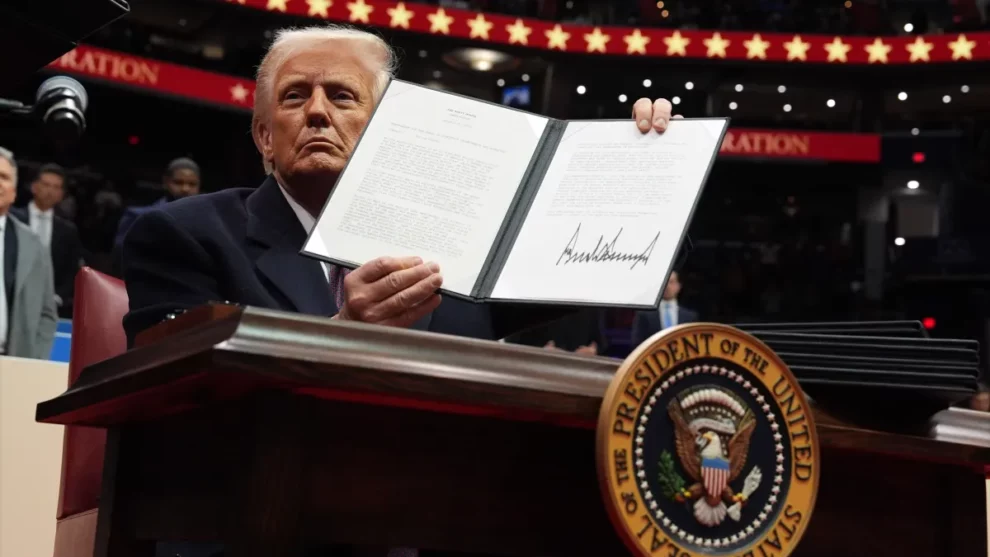President Donald Trump has taken decisive action to temporarily halt the enforcement of a law that effectively banned the popular video-sharing app TikTok in the United States. The executive order, signed by Trump, instructs relevant government agencies to pursue a resolution that balances national security concerns while attempting to save the embattled social media platform.
The move comes just days after the U.S. Supreme Court upheld the Protecting Americans from Foreign Adversary Controlled Applications Act (PAFACA), a law that passed with bipartisan Congressional support during former President Joe Biden’s term. The act, which came into effect on Sunday, January 19, essentially rendered TikTok inoperable within the United States.
Under the terms of Trump’s executive order, the U.S. Attorney General is directed to refrain from taking any action to enforce PAFACA or impose penalties on entities for noncompliance with the act for a period of 75 days. The order states, “During this period, the Department of Justice shall take no action to enforce the Act or impose any penalties against any entity for any noncompliance with the Act.”
Furthermore, the executive order extends this enforcement moratorium beyond the initial 75-day window, stating, “Even after the expiration of the above-specified period, the Department of Justice shall not take any action to enforce the Act.” This provision suggests that TikTok may be granted an indefinite reprieve from the ban, pending the outcome of discussions between the app’s owners and the U.S. government.
The executive order emphasizes the need to find a solution that addresses national security concerns while preserving the popular social media platform. TikTok, owned by the Chinese company ByteDance, has faced scrutiny over its data collection practices and potential ties to the Chinese government. These concerns have led to calls for increased regulation and even outright bans of the app in various countries.
Despite these challenges, TikTok has remained immensely popular, particularly among younger users, who have used the platform to create and share short-form videos, often featuring music, dance, and comedy. The app’s sudden shutdown on Sunday caused widespread confusion and frustration among its millions of American users.
Trump’s intervention in the TikTok saga marks a significant shift in the government’s approach to the app. While the previous administration and Congress had taken a more hardline stance, seeking to ban the app outright, Trump’s executive order appears to prioritize finding a compromise that allows TikTok to continue operating in the U.S. while addressing national security concerns.
The 75-day window provided by the executive order will likely see intense negotiations between TikTok’s owners and the U.S. government, as both parties seek to find a mutually agreeable solution. Potential outcomes could include the sale of TikTok’s U.S. operations to an American company, increased transparency and oversight of the app’s data collection practices, or the implementation of strict security protocols to protect user data.
As the situation continues to unfold, TikTok users and the broader tech industry will be closely watching to see how the app’s fate is ultimately decided. The outcome of these negotiations could have far-reaching implications for the future of social media regulation and the delicate balance between national security and the free flow of information in the digital age.
For now, TikTok users in the United States can breathe a temporary sigh of relief, as the app remains accessible and operational during this 75-day reprieve. However, the long-term future of the platform remains uncertain, as the complex interplay of geopolitics, technology, and national security continues to shape the digital landscape.
















Add Comment